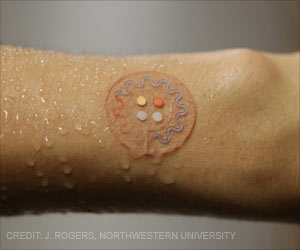Research shows that measuring three biomarkers in blood samples offers a better prediction of women's long-term cardiovascular risk than traditional methods.

- Measuring high-sensitivity C-reactive protein, low-density lipoprotein cholesterol, and lipoprotein(a) together provides a clearer cardiovascular risk assessment
- Women with elevated levels of these markers face significantly higher risks of heart attacks and strokes
- Early and targeted preventive interventions can reduce cardiovascular disease in women
Inflammation, Cholesterol, Lipoprotein(a), and 30-Year Cardiovascular Outcomes in Women
Go to source). The study highlights the importance of measuring multiple biological markers in blood samples to predict the long-term risk of major cardiovascular events. This research, presented at the European Society of Cardiology (ESC) Congress and published in the New England Journal of Medicine, could be a game-changer in personalized preventive care.
Combining high-sensitivity C-reactive protein, low-density lipoprotein cholesterol, and lipoprotein(a) measurements can predict cardiovascular events in women over 30 years more accurately. #womenhealth #hearthealth #medindia’
Power of Multiple Biomarkers in Predicting Cardiovascular Risk
The study, involving 27,939 initially healthy American women, examined the predictive power of three key biomarkers: high-sensitivity C-reactive protein (hsCRP), low-density lipoprotein cholesterol (LDL-C), and lipoprotein(a) (Lp(a)). Each of these markers plays a unique role in cardiovascular health:- hsCRP is an indicator of vascular inflammation.
- LDL-C is often referred to as "bad cholesterol."
- Lp(a) is a genetically determined lipid fraction.
Wake-Up Call: Understanding the Risks
To evaluate the impact of these biomarkers, the research team categorized participants into five groups based on their levels of hsCRP, LDL-C, and Lp(a). The findings were stark:- Women with the highest hsCRP levels had a 70% higher risk of major cardiovascular events.
- Those with the highest LDL-C levels had a 36% increased risk.
- Women with elevated Lp(a) levels faced a 33% higher risk.
“This is a wake-up call for women,” emphasized co-author Julie Buring, ScD, an epidemiologist at Brigham’s Division of Preventive Medicine. The study suggests that waiting until women are older to begin heart attack and stroke prevention is far too late.
Reducing Cardiovascular Risk in Women
The good news is that each of these risk factors can be modified through lifestyle changes and drug therapy. Previous studies have shown that lowering cholesterol and inflammation significantly reduces the risk of heart attacks and strokes. Additionally, new drugs that target Lp(a) and advanced anti-inflammatory agents are currently being tested for their potential to further reduce cardiovascular events.The research strongly supports the early and aggressive use of targeted preventive interventions, particularly for women, who are often overlooked in cardiovascular disease treatment.
As we move forward, the focus on women's cardiovascular health must shift towards a more personalized approach, incorporating multiple biomarkers to assess risk and tailor interventions. While lifestyle changes such as diet, exercise, and smoking cessation remain essential, the future of prevention will likely include combination therapies that address inflammation and Lp(a) alongside cholesterol management. As Dr. Paul Ridker, lead author of the study, aptly noted, "Doctors cannot treat what they don’t measure." This research underlines the need for universal screening and early intervention to better protect women from the dangers of cardiovascular disease.
Reference:
- Inflammation, Cholesterol, Lipoprotein(a), and 30-Year Cardiovascular Outcomes in Women - (https://www.nejm.org/doi/10.1056/NEJMoa2405182)
Source-Medindia















